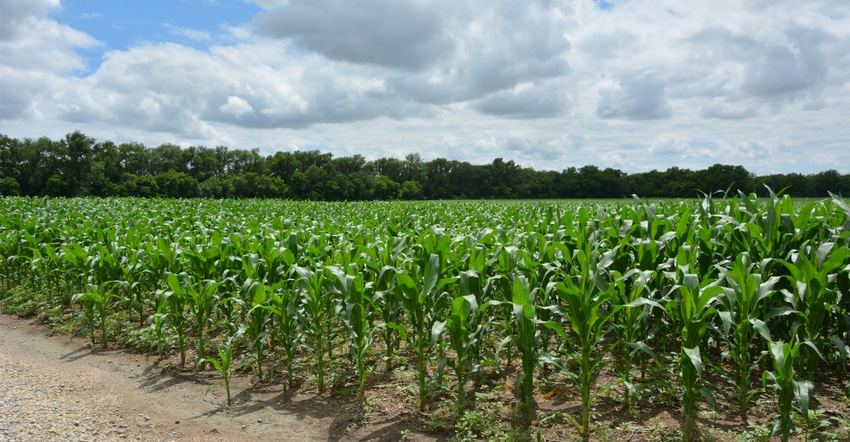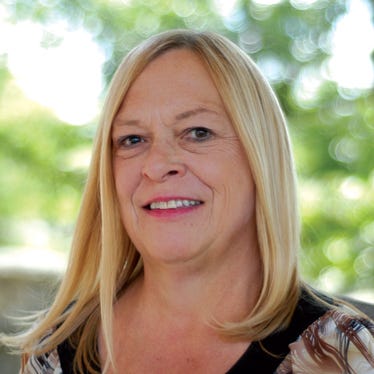
The normal air of excitement that comes with the approach of the wheat harvest season is overlaid with uncertainty and a sense of unease this year.
At a time when custom harvesting crews are usually readying equipment, stocking bunkhouse trailers, settling in seasonal H-2A workers, getting last-minute CDL tests completed and heading to south Texas, dozens of crews are dealing with a myriad of consequences from the COVID-19 pandemic.
“It’s absolutely having a huge impact on us,” says Mandi Sieren, operations manager with U.S. Custom Harvesters Inc., based in Turon. “We can’t get H-2A workers in here. And without them, crews are short of help. We just can’t find American workers willing to work the hours, be on the road for weeks or months for the wages that we can afford to pay.”
She says CDL drivers are in short supply and the numbers can’t be increased by DMV offices across the country are closed and they can’t get potential drivers through the licensing process.
Crews already chopping silage
“I have one member in Colorado who is already in south Texas chopping silage,” Sieren says. “He had to leave Colorado with a crew of 70 where he usually has 150 because his H-2A workers can’t get into the country. He’s looking at having to run with non-CDL drivers pulling equipment and driving trucks because he’s trying to run at half-staffed to get the work done.
“This is harvest that has to happen. If you can’t get silage chopped, you can’t feed dairy cows. If those cows have to go to slaughter, you don’t have milk. That’s the reality of the food supply chain.”
Sieren says harvesting crews are extremely concerned about how to manage the coming season.
“Our government affairs agency in D.C. is lobbying for legislation that would waive the CDL requirement for custom harvesters, essentially giving them the same waiver farmers have for this year,” she says. “It’s not that we object to having our drivers licensed, it’s that we cannot get that done under the circumstances.”
Unlike other businesses, custom harvesters and the farmers who depend on them can’t simply wait. When crops are ready, they’re ready.
Some need to make multiple trips
Sieren says a Pennsylvania member is on the road now, starting to move combines south to be ready for wheat harvest.
“They have to make multiple trips to get everything staged and ready to start,” she says. “They have a crew in Georgia right now to chop silage. There’s no place to eat because all the restaurants are closed. They are having trouble finding supplies. This is a real hardship for crews.”
Beyond the logistical problems, crews also worry with the rest of the country about the impact of being infected with the virus or having family members infected.
“Then there’s the realization that if one member of the crew does come down with the virus, the whole crew will have to be quarantined for 14 days and that’s time they won’t be chopping silage or harvesting wheat. It’s hard enough under ideal circumstances to keep harvest moving. This is just one more thing to cause hardship,” she says.
Worker shortage big issue
In Emporia, Dan and Stephanie Skinner are usually all hands on deck getting ready for hitting the road.
“This year we have two full-time crew members and we need to hire eight more. Those people are usually H-2A workers — workers that can’t get processed through closed consulates and that may be quarantined if they do get in,” Stephanie says. “We usually start deep in central Texas in May. We don’t have our employees and no timeline for when, or if, we will get them. We’re trying to push to get approvals done faster, but there’s no certainty that will happen.”
Stephanie says she normally stocks her bunkhouse trailer with about five months’ worth of dry goods before they leave Kansas. When the crew is on the road, she provides meals to the workers.
“This year, there is such a shortage of supplies. There are restrictions on how much we can buy. I can’t get canned goods, paper towels, toilet paper. It’s pretty stressful,” she says. “Once we do leave, I have no idea whether I’ll be able to find supplies or how far I might have to drive to get the food we need.”
Stephanie says she and her husband — like other custom crews around the country — are just hoping that the pandemic will abate over the next 30 days and that the government will take action to provide exceptions for CDL drivers, get the H-2A approval process streamlined and give crews assurance that they will be free to travel.
“We can’t just park our equipment and say forget it,” she says. “This is our livelihood. Beyond that, our customers need us to show up. Most of them don’t own a combine. They can’t simply harvest the crops themselves.
“This is just so impactful. And we understand that it’s not just us. Other businesses are feeling it too. We just want this to be over.”
Determined to be there for farmers
In Colby, Jim and DeAnn Deiburt, owners of JKD Harvesting, are preparing to head to south Texas around the second week of May and hoping that at least some of the seven J-1 and H-2A foreign workers they had lined up before the coronavirus pandemic struck will be available.
“In any given year about half of my workers are foreign kids,” Jim says. “I used to get a lot of college kids when most of my jobs revolved around wheat harvest but now college classes start back in August when we are just getting started in South Dakota. That has left me relying more on foreign workers. We start in Texas in May and end up in North Dakota late in the fall.”
He says the J-1 visas are student visas issued to agricultural students in other countries who want to experience the “Great American Wheat Harvest” firsthand.
“They are mostly farm kids and they know hard work and responsibility,” he says. “So far, I’ve hired some people who got laid off with this pandemic, but I don’t know when their old job might open back up. If that happens, will they just overnight quit me and go back?”
Jim says he is fortunate that some Department of Motor Vehicle offices in western Kansas have opened up to try to help get CDL tests administered.
“They are trying to help. Usually there is a 10-day waiting period between passing the written exam and taking the driving exam,” he says. “I have a couple of American kids right now under quarantine and studying for the CDL test. We’ve been monitoring their temperature and hoping they don’t get sick.”
Jim says he is also concerned about the virus during the harvest season.
“If one person on the crew gets sick, we’re all shut down,” he says. “I do feel better, though, that we pull our own bunkhouses. We cook all our own food and we stay on the farms. It means we don’t come into contact with people very often.”
He says he has some concerns about finding sufficient supplies on the road.
“We depend on stopping at Sam’s Clubs to stock up,” Jim says. “We take all our own meat with us, but we buy produce, bread and so forth. This is the first time in my life that I can remember the grocery shelves being empty for days. Maybe it will make the average American consumer realize the value of agriculture.”
Jim says he is determined to be there for the customers who count on him.
“For the farmers we cut for, this is the major part of their income for the year,” he says. “They are depending on me and I intend to be there for them just like I have been for the last 25 years.”
About the Author(s)
You May Also Like






